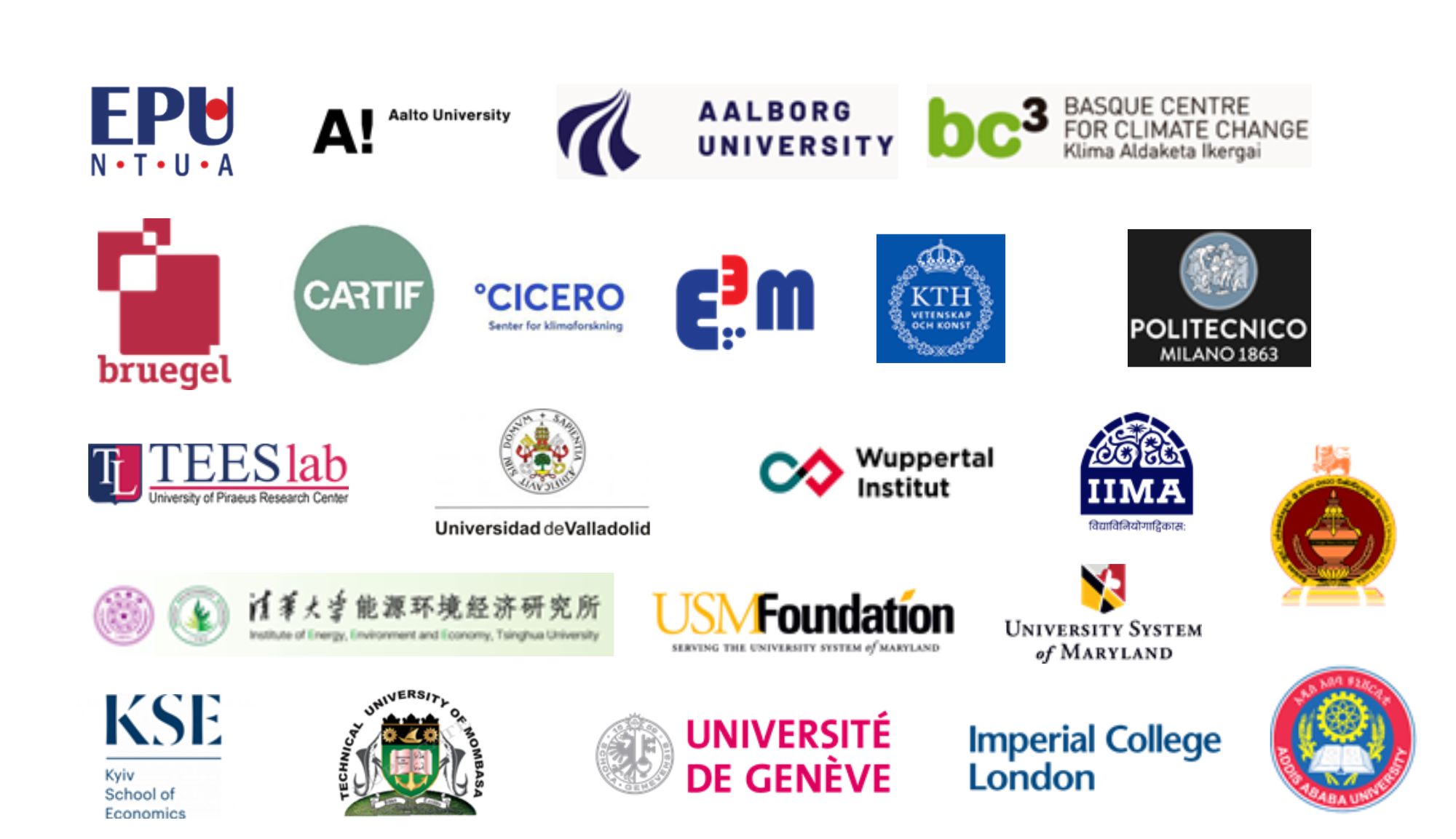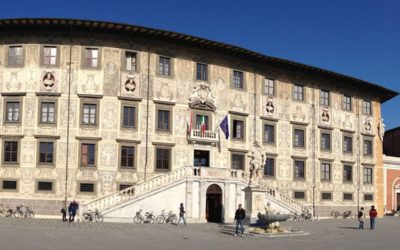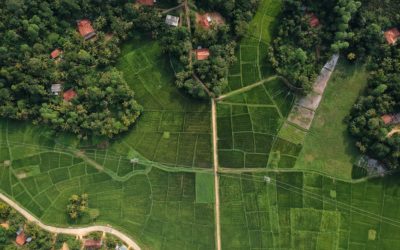CARTIF Projects
IAM COMPACT
Assessing feasibility and progress towards global climate goals
Description
IAM COMPACT supports the assessment of global climate goals, progress, and feasibility space, and the design of the next round of Nationally Determined Contributions (NDCs) and policy planning beyond 2030 for major emitters and non-high-income countries. It uses a diverse ensemble of models, tools, and insights from social sciences to enhance transparency, robustness, and policy relevance of this tools.
The project explores the role of structural changes in major emitting sectors and of political, bheaviour, and social aspects in mitigation. It also quantifies factors promoting or hindering climate neutrality and accounts for extreme scenarios, to deliver a range of sustainable and feasible pathways.
Objectives
- Support the assessment of global climate goals (progress, and feasibility space) and the design of the next round of NDCs.
- Explore the role of structural changes in major emitting sectors and of political, behaviour, and social aspects in mitigation.
- Account for extreme scenarios and disruptive events.
- Place climate action in the broad sustainable development spectrum.
- Develop technical capacity and promote ownership in countries with limited in-house capacity.
Actions
- Listening: politicians, experts, industry and civil society will communicate their needs by actively participating.
- Exchanging: protocols and templates shared between models.
- Modeling: use a modelling esemble of 25 (sub)national, regional and global integrated assessment, energy and sectoral models.
- Expanding the models: sectors and their interrelationships, extreme and disruptive events, holistic approach and sustainable development.
- Explaining: use the scenarios to update the policies.
Expected results
- Enhanced science-policy interface: Policy Response Mechanism
- Uptake: mitigation pathways to inform medium-long term climate policies
- Exploitation of modelling research breakthroughs: out-of-ordinary extremes, social and gender implications, disruptive innovations, lifestyle and social innovation, truly sustainable development pathways.
- Enhanced international cooperation in science
- Technical capacities development in four countries: Kenya, Ethiopia, Ukraine, Sri Lanka
Partners

Horizon Europe
Horizon-CL5-2021-D1-01-04

Total Budget: 4,461,323€
CARTIF Budget: 222,500€
CARTIF Financing: 222,500€
Duration: 09/2022 – 08/2025

Responsible
Noelia Ferreras
Networking
Energy and Climate Policies Projects:
CLIMRES
CLIMRES aims to foster a ‘Leadership for Climate Resilient Buildings’, by addressing the identification and systematic categorisation of buildings’ vulnerabilities and estimating their impact in the buildings’ ecosystem considering the interlinkages within the urban context.
THUNDER
THUNDER project aims to overcome existing barriers hampering a wide adoption of DCs waste heat recovery strategies, providing an innovative, efficient and cost attractive Seasonal Thermal storage based on Thermochemical Materials
SCO2OP-TES
SCO2OP-TES focuses on the development of technologies for storing electricity in the form of heat, which is then converted back into electricity (P2H2P – power-to-heat-to-power).
HYDRA
HYDRA focuses on understanding and addressing the potential impact of widespread hydrogen use on climate, environment and society. The project assesses a scenario of high hydrogen penetration in the energy mix.
INHERIT
The overall vision of INHERIT is to create a systematic methodology, accompanied by leading-edge Information and Communication Technologies (ICTs), such as Internet of Things (IoT), Artificial Intelligence (AI) and (big) data analytics, and associated social/behavioural practices, towards sustainable, inclusive and resource-efficient Cultural Heritage (CH) solutions.
BUILDSPACE
BUILDSPACE aims to couple terrestrial data from buildings with aerial imaging from drones equipped with thermal cameras and location annotated data from satellite services to deliver innovative services for the building and urban stakeholders and support informed decision making towards energy-efficient buildings and climate resilient cities.
ECOESION_TOOL
The main objective of Ecoesion_tool project is the implementation of a web-based, easy-to-use and user-friendly tool based on the Ecoesion model developed by the University of PISA (UNIPI)
NEVERMORE
NEVERMORE will support excellence in climate research overcoming the current approach in evaluating climate change impacts and risks across sectors and adaptation and mitigation policies and measures.
PACES Logroño
The aim of the project is the preparation and elaboration in the framework of the Deal of Majors for the Climate and Energy, of the Plan of Action for the Climate and Energy Sustainable of the municipality of Logroño.
SPANDAM
Development of a simulation tool to support decision-making and the design of public policies aiming to achieve a balanced and sustainable demographics, socieconomic and environmental development in areas affected by depopulation.
RethinkAction
Development of a cross-sectoral decision-making platform to foster climate action, focusing on climate mitigation and adaptation.
RENERMap
The main objective of RENERMap is to achieve a detailed analysis of the renewable potential available at local level, including both roofs and municipality land, to respond to the demand of energy that it generates, and to help to achieve the development of self-sufficient energy municipalities.
EACC_Extremadura
Extremadura Strategy for Adaptation to Climate Change 2021 – 2030 aims to analyse the influence of climate change on the Autonomous Community of Extremadura , identifying impacts, risks and climate vulnerabilities on the main strategic sectors of the region.
e-PARCERO
ePARCERO project will develop an automated prototype that allows the identification of cadastral parcels without current use in demonstrators located in relevant areas of Castilla y León, taking into account the different conditions that may affect each parcel.
BUILTHUB
BUILTHUB aims to develop a strctured and inclusive reliable data collection approach on the EU building stock, as well as an easy to access & use datahub, in the shape of a strctured web-based platform.
EACC Val
EACC Val project aims to analyze the influence of climate change on the municipality of Valladolid, identifying climate risks and vulnerabilities and proposing actions that affect its future climate adptation.
LOCOMOTION
LOCOMOTION will design a set of IAMs that will provide politicians and other stakeholders with assessment tools to analyze the feasibility, effectiveness and costs of the different sustainability policies and strategies.
ELISE Energy Pilot
The aim of the ELISE action is to promote a coherent and consistent approach to the sharing and reuse of location data across borders and sectors.
CCliMAP
The CCliMAP project has the general objective of providing resources and instruments to aid decision-making for the reduction of greenhouse gases
TEC4ENERPLAN
The main objective is the development of advanced methods for energy planning at different scales (building to region), that support the development of tools. It will offer a working basis to those entities responsible of the generation, deployment and evaluation of energy actions aimed at the compliance with the energy efficiency objectives 2020–2050



















